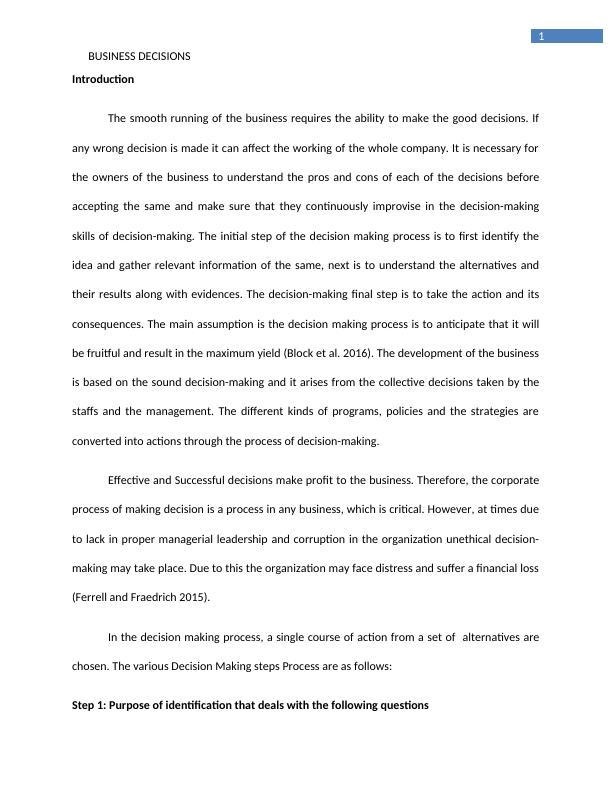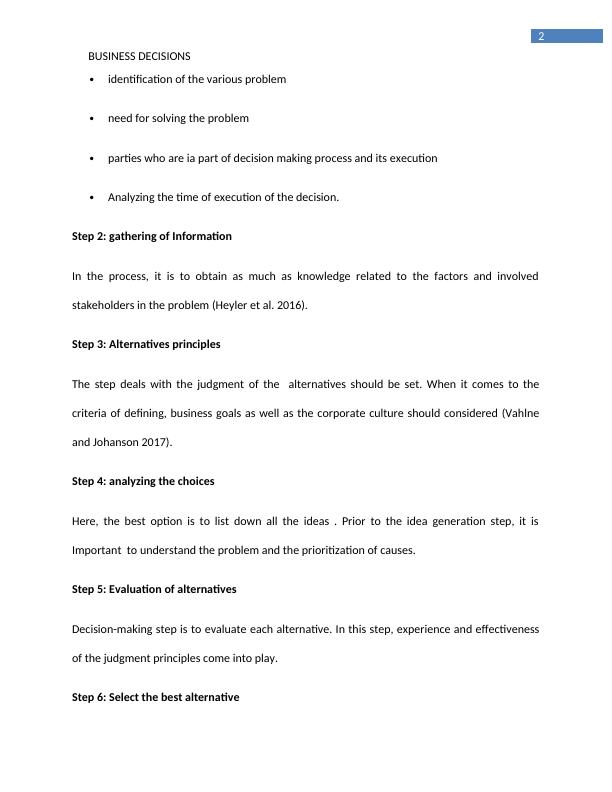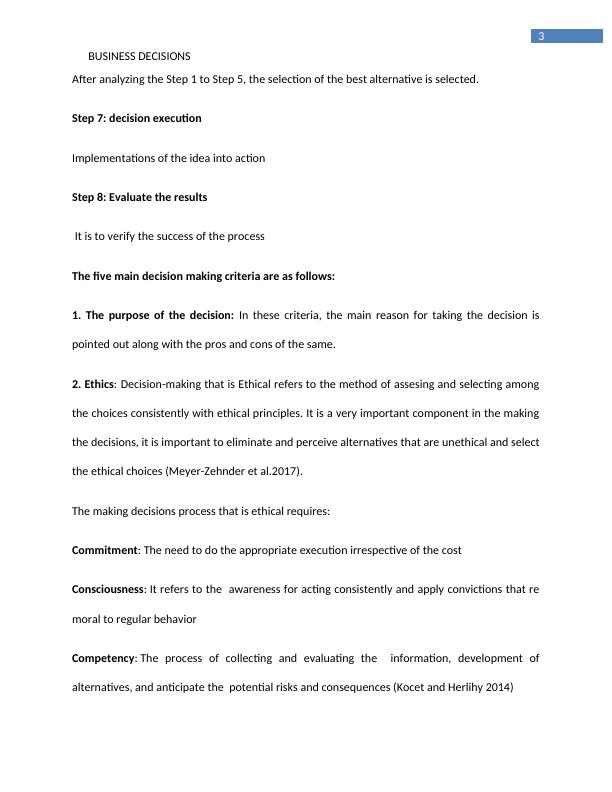Business Decisions: Steps, Models and Criteria
12 Pages2134 Words416 Views
Added on 2023-06-13
About This Document
The smooth running of the business requires the ability to make good decisions. Effective and successful decisions make profit to the business. Learn about the steps, models and criteria involved in making effective business decisions. Understand the importance of ethical decision-making and the impact of different decision-making models.
Business Decisions: Steps, Models and Criteria
Added on 2023-06-13
ShareRelated Documents
End of preview
Want to access all the pages? Upload your documents or become a member.
MGT101 Fundamentals of Management Assignment
|13
|2753
|139
What Are the Tools Use in Managerial Decision Making?
|18
|4640
|13
EMPLOYABILITY Skills and Techniques that Make Communication Effective at Tesco
|10
|2696
|422
Business Decision Making Assignment | Business Environment Assignment
|12
|4913
|62
HRM Problem Solving Techniques
|11
|724
|42
Decision Making Question Making Question Making Question 1: Understanding Your Problem
|8
|1322
|61




